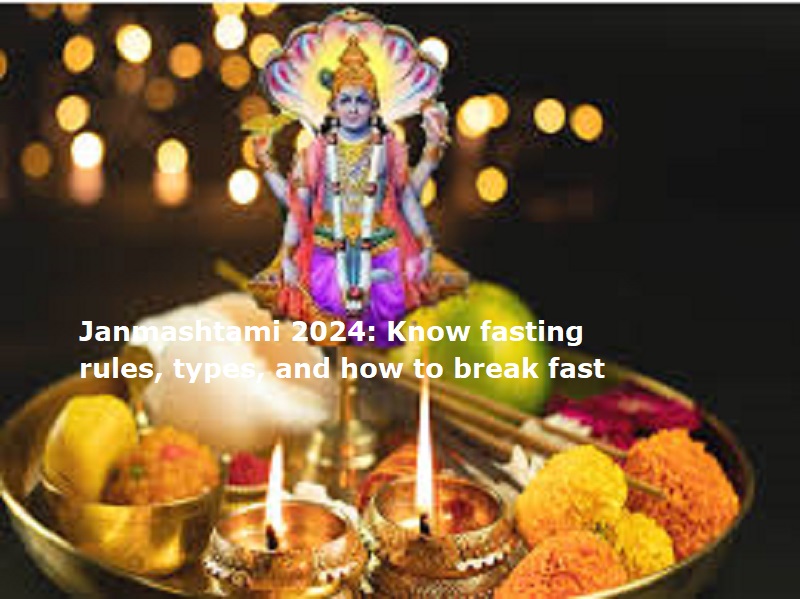
Mumbai: Janmashtami is a Hindu festival that commemorates the birth of Lord Krishna, marking His 5251st birth anniversary this year. The day, also known as Krishna Janmashtami, Krishnashtami, Gokulashtami, Ashtami Rohini, Srikrishna Jayanti and Sree Jayanthi, marks the birth of Lord Krishna. He is believed to be the eighth incarnation of Lord Vishnu. It is celebrated on the eighth day of (Ashtami) of the Bhadrapada month, which usually falls in August or September.
Krishna Janmashtami will take place on August 26, 2024. Ashtami begins on August 26, 2024, at 03:39 AM and ends on August 27, 2024, at 02:19 AM.
One of the important aspect of Janmashtami is fasting, which is seen as a way to purify the body and mind.
Types of fasts:
On Janmashtami, devotees typically observe two main types of fasts: Nirjala (without water) and Phalahar (fruit and milk-based diet).
Nirjala Fast: This is the most stringent form of fasting where devotees abstain from both food and water throughout the day. The fast is broken only at midnight, the believed time of Krishna’s birth, after offering prayers and aarti.
Phalahar Fast: The Phalahar fast allows the consumption of fruits, milk and water. Devotees refrain from consuming grains, legumes and certain vegetables like onions and garlic, adhering to a Sattvic (pure) diet.
Dietary restrictions:
During Janmashtami fasting, there are specific food items that are commonly avoided. Devotees steer clear of grains, pulses, rice and salt. Instead, they consume non-cereal foods like buckwheat flour (kuttu ka atta), amaranth flour (rajgira ka atta), and water chestnut flour (singhare ka atta). Rock salt (sendha namak) is used instead of regular table salt.
Also Read: UAE announces flexible work hours for some employees: Details
Permissible Foods:
Fresh fruits like bananas, apples and pomegranates
Dairy products like milk, yogurt, paneer and butter
Root vegetables such as potatoes and sweet potatoes, often used in dishes like vrat (another Hindi term for fasting) ke aloo
Nuts and seeds, which provide energy and nutrients during the fast
Rituals and breaking the fast:
Fasting on Janmashtami is typically accompanied by day-long prayers, bhajans and recitations of the Bhagavad Gita or Krishna Leela. Many devotees visit temples, where the birth of Krishna is celebrated with great fervour.
The fast is traditionally broken at midnight after the symbolic birth of Lord Krishna. The ritual of breaking the fast involves offering the prepared food to Krishna, followed by partaking in the Prasad.

Post Your Comments